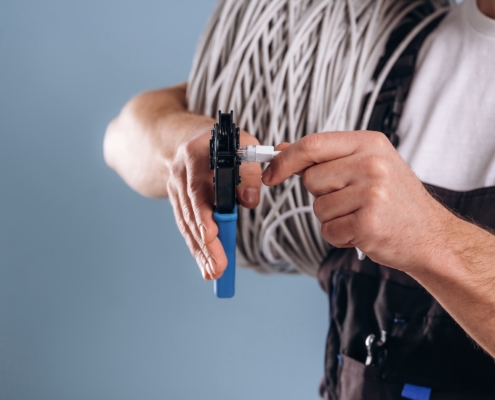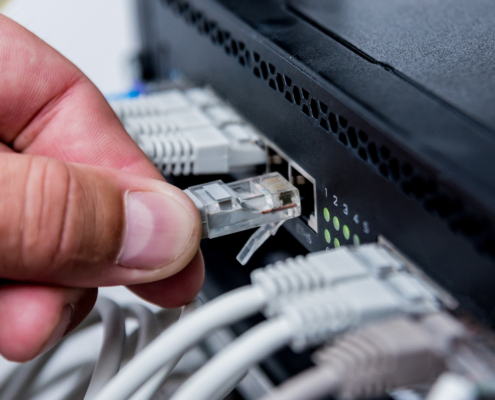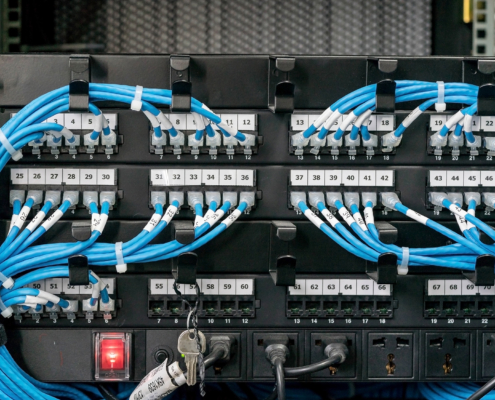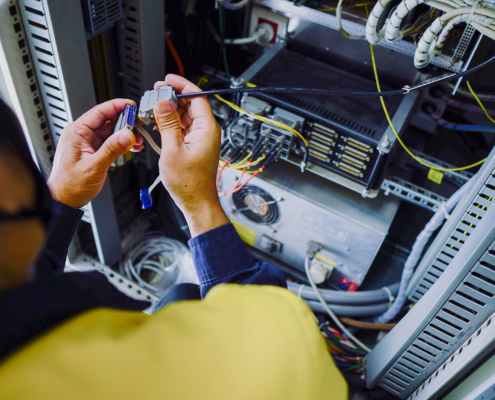 https://ringandping.com/wp-content/uploads/2025/07/cables-in-hands-close-up-view-of-man-against-back-2025-08-11-08-35-50-utc-scaled.jpg17072560Abstrakt Marketing/wp-content/uploads/2024/05/ringandping_logo.svgAbstrakt Marketing2025-07-28 07:41:112025-08-29 01:30:05How Warehouse Cabling Problems Can Disrupt Your Operations
https://ringandping.com/wp-content/uploads/2025/07/cables-in-hands-close-up-view-of-man-against-back-2025-08-11-08-35-50-utc-scaled.jpg17072560Abstrakt Marketing/wp-content/uploads/2024/05/ringandping_logo.svgAbstrakt Marketing2025-07-28 07:41:112025-08-29 01:30:05How Warehouse Cabling Problems Can Disrupt Your OperationsIn our post back in July 2013, What To Look For When Comparing Fiber Optic Installation Companies, we went over seven very important questions you should ask when comparing network cabling installation quotes. If you missed that post, go ahead and read that first. This one will go over another important question that will help you weed out the amateurs from the pros – What cable testing equipment do they use? There are thousands of cable testing tools on the market ranging from $20 to over $12,000. Unfortunately, these testing devices are not all created equal. Some of the cheaper models only test for basic connectivity and some of those don’t even do that well. The purpose of a cable testing device is to provide a level of assurance that the network cabling installed, whether copper or fiber, supports the data communication and speed desired. A top of the line tester will check for at least the ten factors listed below to ensure your network is running at optimal speeds. 10 Key Factors a Network Testing Tool Should Cover: Cabling contractors widely agree that Fluke Networks makes the best of the best in network testing tools. Their family of testing tools are unmatched in their diagnostic capabilities and speed testing functionality. In 2013, Fluke Networks released the Versiv line of their network testing tools. The Versiv line provides a single platform to test both copper and fiber cabling and certifies performance to the most rigorous Level V accuracy requirements for Cat 6, Cat 6A or Class F. It makes measurements that have never before been available in a handheld field tester. In addition to stringent accuracy, the Versiv line performs with incredible speed. The tester is capable of completing copper certification to Cat 6A in just ten seconds and can certify two fibers at two wavelengths in both directions in just three seconds. The one of a kind Taptive interface pinpoints hard to find errors and diagrams them so difficult troubleshooting become quick and easy. So, what does that mean for you? Faster testing and troubleshooting means that your network cabling installation will be completed much faster overall so you aren’t stuck paying for extra labor hours. The bottom line is this, if the network cabling installation company you are contracting doesn’t use Fluke Network testing tools, you should look for a new company to maintain or install your network. For more information on network testing tools or to get a free quote from Ring and Ping Communications, the leading network cabling installation company in Southern California, give us a call at(714) 617-4025 or click here. We exclusively use Fluke Networks Versiv Line of testing equipment because making sure we install a network that performs to the most stringent level of performance for our customers matters to us.
Share This Post
More Like This
 https://ringandping.com/wp-content/uploads/2025/07/cables-in-hands-close-up-view-of-man-against-back-2025-08-11-08-35-50-utc-scaled.jpg17072560Abstrakt Marketing/wp-content/uploads/2024/05/ringandping_logo.svgAbstrakt Marketing2025-07-28 07:41:112025-08-29 01:30:05How Warehouse Cabling Problems Can Disrupt Your Operations
https://ringandping.com/wp-content/uploads/2025/07/cables-in-hands-close-up-view-of-man-against-back-2025-08-11-08-35-50-utc-scaled.jpg17072560Abstrakt Marketing/wp-content/uploads/2024/05/ringandping_logo.svgAbstrakt Marketing2025-07-28 07:41:112025-08-29 01:30:05How Warehouse Cabling Problems Can Disrupt Your Operations
5 Ways Your Business Can Benefit From Improved Warehouse Cabling in Orange County

The Top LA Warehouse Network Cabling Challenges

Common Warehouse Network Issues and How to Avoid Them at Your Facility

Why Reliable Network Cabling is Vital for Large Warehousing Operations

The Role of Network Cabling in Modern Warehouses

Choosing the Right Network Cabling for Your Warehouse: A Complete Guide

Premise Distribution Systems (PDS) and Why Fiber Optics Are the Future



